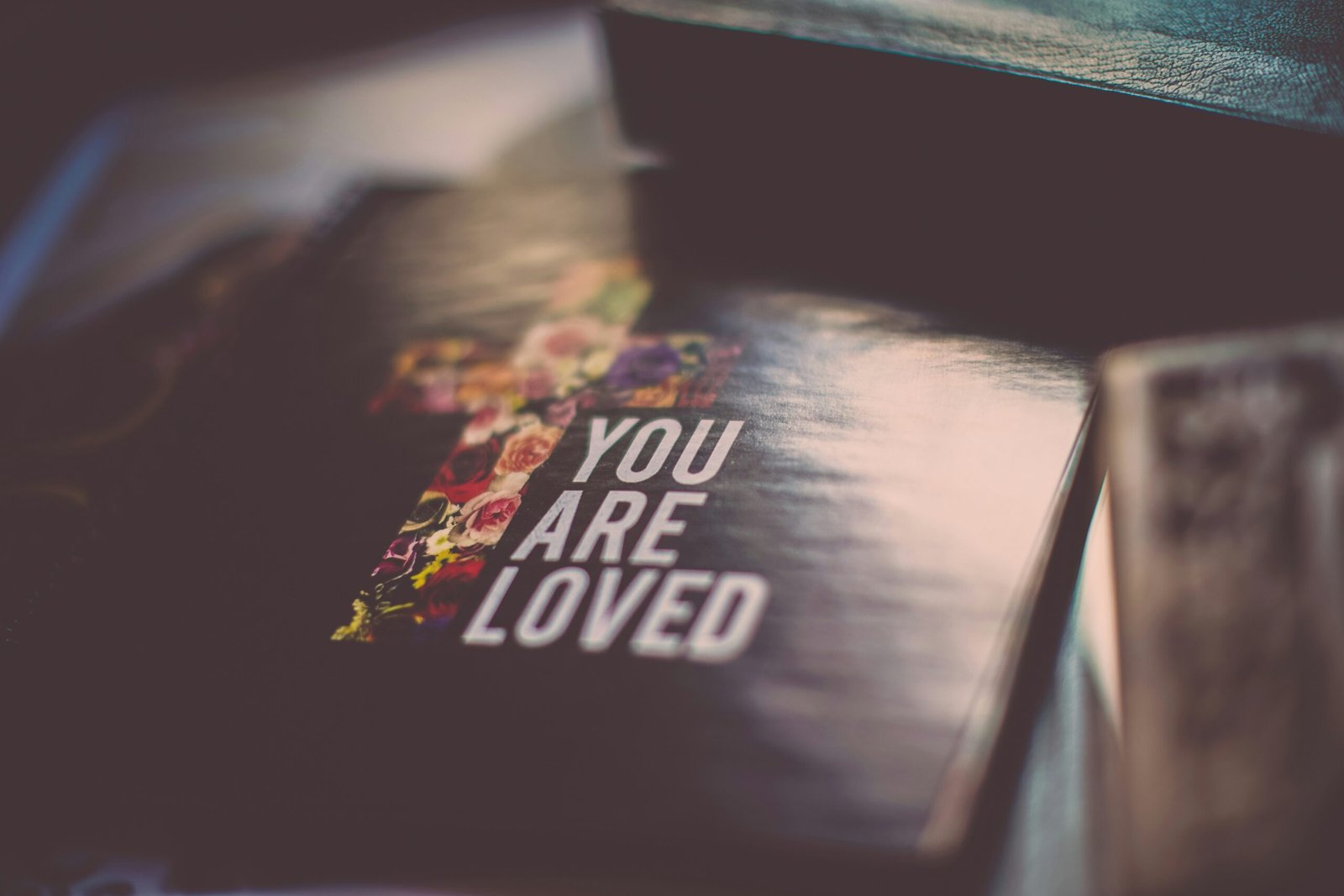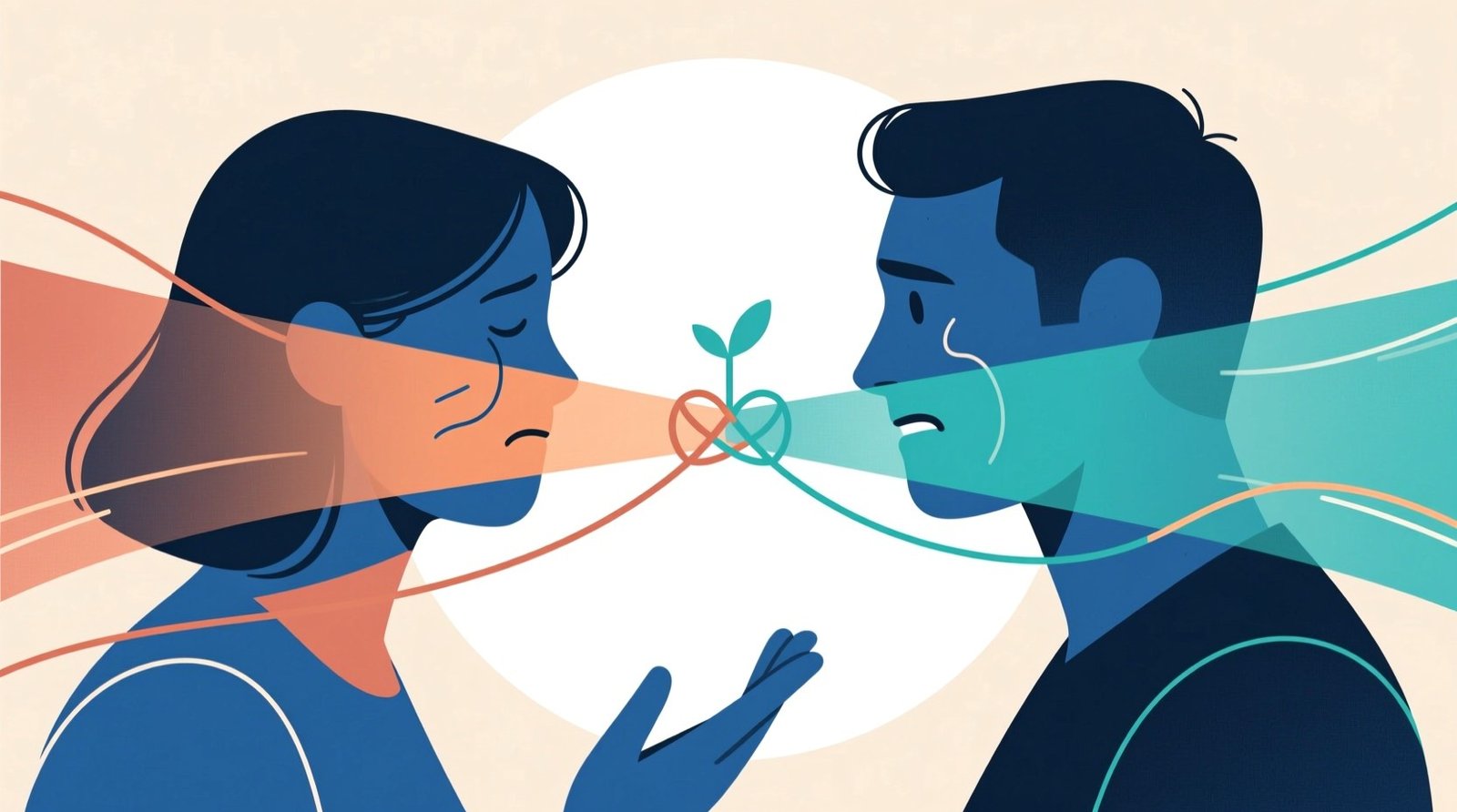Understanding Philophobia
Philophobia, derived from the Greek word “philos,” meaning love, combined with “phobos,” which translates to fear, represents a profound, often debilitating fear of love and emotional attachment. This psychological condition transcends mere discomfort; it manifests in individuals as an intense aversion to forming romantic relationships or engaging in emotionally intimate connections. The implications of philophobia can significantly impact a person’s emotional and social well-being, leading to avoidant behaviors that can isolate them from meaningful relationships.
Phobias arise from a complex interplay of environmental factors, personal experiences, and sometimes, biological predispositions. Those with philophobia may have had negative experiences related to love in their past, such as trauma from a failed romantic relationship, loss, or abandonment. These experiences can instill a deep-seated fear, causing individuals to associate love with pain, vulnerability, and emotional turmoil. As such, philophobia can prevent individuals from pursuing healthy relationships, leading to feelings of loneliness and sadness.
The psychological implications of this condition are profound. Individuals afflicted by philophobia may experience anxiety, panic attacks, or other emotional distress when confronted with situations that evoke feelings of love or intimacy. This response can further exacerbate their aversion, creating a cycle of fear and avoidance. Moreover, due to the varied personal experiences of individuals, philophobia can manifest uniquely. Some may experience situationally triggered anxiety during potential romantic encounters, while others might feel an overarching, pervasive fear surrounding any form of emotional connection.
In understanding philophobia, it is crucial to recognize that seeking help from mental health professionals can be a vital step for those affected. Therapeutic strategies, such as cognitive-behavioral therapy, can work effectively to alleviate the symptoms of this fear, allowing individuals to gradually face their emotional apprehensions and foster healthier relationships.
The Roots of Fear: What Causes Philophobia?
Philophobia, the fear of love, can stem from a variety of sources, deeply embedded in an individual’s past experiences and psychological makeup. One of the primary contributors to this condition is past trauma. Individuals who have undergone significant emotional pain due to previous relationships may develop a protective mechanism, driving them to avoid love altogether. Such experiences can result in feelings of vulnerability and the fear of being hurt again. Whether through a painful breakup or witnessing unhealthy dynamics in family relationships, these events can create a lasting impact on one’s perception of love.
Moreover, negative relationship experiences play a crucial role in the development of philophobia. If a person has encountered betrayal, manipulation, or significant emotional distress, these experiences can cultivate a fear of intimacy. The overwhelming emotional turmoil associated with these unfavorable relationships may lead individuals to associate love with pain, thereby triggering philophobic reactions. This desire to shield oneself from potential harm can result in a pattern of avoidance, making it challenging to forge new emotional connections.
Additionally, an individual’s attachment style significantly influences their capacity to love and experience relationships. Research highlights that those with insecure attachment styles—stemming from inconsistent caregiving in childhood—may struggle with intimacy and trust. Such individuals often experience anxiety or avoidance when it comes to forming deep connections, leading to an inherent fear of love. Insecure attachment often manifests as fear of dependency or fear of abandonment, wherein individuals grapple with the dilemmas posed by entering into romantic relationships.
Understanding the roots of philophobia is vital for addressing the anxieties surrounding love. By recognizing the impact of past trauma, negative relational experiences, and attachment styles, individuals may begin to untangle their fear, allowing for the possibility of healthy, rewarding relationships in the future.
Philophobia in Relationships: The Struggle to Connect
Philophobia, the intense fear of love or emotional attachment, presents significant challenges for individuals in romantic relationships. For those grappling with this condition, the initial excitement of romance can quickly morph into overwhelming anxiety. As a result, individuals may employ avoidance behaviors, steering clear of romantic encounters altogether or abruptly ending relationships before they have the chance to evolve. This fear often stems from past experiences, such as traumatic relationships or abandonment, which condition them to associate love with pain and vulnerability.
In romantic scenarios, individuals suffering from philophobia often experience emotional detachment. They might find it difficult to open up, express vulnerability, or fully engage in emotional exchanges with their partners. This emotional barricade complicates efforts to communicate, as feelings of fear can overshadow any attempts to create intimacy. Partners may interpret this detachment as disinterest or lack of affection, leading to misunderstanding and frustration. Consequently, the relationship dynamic can become strained, as one person seeks emotional connection while the other recoils in apprehension.
The inability to form and maintain intimate connections often results in isolation. Philophobics may push away those who wish to connect deeply, favoring a solitary existence over potential heartache. While it is a protective mechanism, this can lead to feelings of loneliness, exacerbating the fear of love. The paradox lies in the desire for connection coupled with the intense fear of what that connection may bring. As a result, individuals with philophobia may find themselves caught in a cycle of longing for companionship while simultaneously retreating from it, perpetuating a cycle of heartache and disconnection.
The Horror Movie Analogy: Love as a Fearful Experience
For individuals grappling with philophobia, the experience of love can often resemble that of a horror movie—full of suspense, anxiety, and an overarching sense of dread. Just as horror films use devices like sudden scares and unexpected plot twists to elicit fear, the emotional landscape of romantic relationships can evoke similar feelings of trepidation. The anticipation of emotional pain, the threat of betrayal, and the possibility of loss can create a chilling atmosphere that makes individuals wary of falling in love.
One significant parallel between love and horror films is the fear of emotional vulnerability. In a horror movie, characters often find themselves in terrifying situations where their safety is compromised. Similarly, individuals with philophobia may feel that opening themselves up to a partner exposes them to deep emotional wounds. This inclination to self-protect stems from past experiences or the inherent risks associated with intimacy, where love can be perceived as a double-edged sword—capable of bringing joy but also deep sorrow.
Betrayal serves as another common source of anxiety for those struggling with the notion of love. The betrayal trope is prevalent in horror films, where familiar surroundings become perilous, and trust is shattered. For people with philophobia, the specter of betrayal looms large, leading to the fear that those they love might ultimately cause them pain. This constant concern makes the thrill of love more akin to a nightmare than a dream, raising the stakes of romantic engagement.
Loss, both in horror films and relationships, creates a heavy emotional burden. The stakes in love are heightened by the potential for heartache that accompanies attachment. This sense of impending doom can prevent individuals from embracing love, as they become entangled in a cycle of fear and avoidance that mirrors the gripping terror of a horror movie plot. Ultimately, the experience of love for those with philophobia may be less about the excitement of romance and more about navigating the shadows of fear and anxiety.
Coping Mechanisms: Managing Philophobia
Philophobia, the fear of love or emotional attachment, can be distressing and isolating for those who experience it. However, several coping mechanisms can help individuals manage their fears while promoting healthier relationships. One effective approach is cognitive-behavioral therapy (CBT), which focuses on identifying and challenging negative thought patterns associated with love and intimacy. Through the process of restructuring these thoughts, individuals can begin to change their emotional responses and reduce their anxiety surrounding relationships.
Mindfulness practices also serve as a valuable tool for managing philophobia. Engaging in mindfulness techniques, such as meditation and deep-breathing exercises, allows individuals to ground themselves in the present moment, minimizing fears of future heartbreak or rejection. This practice encourages awareness of one’s thoughts and feelings without judgment, facilitating a healthier relationship with the idea of love. Furthermore, incorporating regular mindfulness exercises into daily routines can boost overall emotional resilience, thus equipping individuals to face their feelings of fear more effectively.
Another helpful coping strategy is to seek therapy. A licensed mental health professional can provide a safe space for individuals to explore their fears and develop personalized strategies to cope with them. Therapy can also offer support in building trust and improving communication skills, which are fundamental in forging deeper connections with others. Engaging in group therapy can be particularly beneficial, as it provides the opportunity for individuals to communicate their struggles with others facing similar issues, fostering a sense of community and reducing feelings of isolation.
By employing these coping mechanisms, individuals battling philophobia can gradually work through their fears, fostering emotional well-being and paving the way for healthier relationships in the future.
Therapeutic Approaches for Overcoming Philophobia
Philophobia, the fear of falling in love, can be debilitating for those who experience it, leading to avoidance of relationships and emotional distress. Fortunately, various therapeutic modalities can aid individuals in confronting and overcoming this challenge. Each therapy offers different techniques and insights that can facilitate the healing process.
One prominent method is exposure therapy, which gradually exposes individuals to the concept of love and relationships in a controlled and supportive setting. This process begins with small, manageable tasks, such as discussing feelings about love or even engaging in low-pressure social interactions. The goal is to incrementally increase exposure to the feared situation, thereby reducing anxiety and fostering a healthier perspective on love. Over time, individuals learn to cope better with their fears.
Cognitive-behavioral therapy (CBT) is another effective approach, focusing on identifying and challenging negative thought patterns associated with love. Therapists work with clients to recognize irrational beliefs, such as the fear of rejection or abandonment, and replace them with more constructive thoughts. By reframing these perceptions, individuals can shift their emotional responses, ultimately fostering a more positive attitude toward love and relationships.
Narrative therapy also holds promise for those grappling with philophobia. This therapeutic method encourages individuals to recount and reinterpret their personal stories related to love. By articulating feelings and experiences in a safe and supportive environment, clients can gain new insights and ways of understanding their fears. This self-exploration facilitates emotional healing and empowerment, ultimately allowing individuals to redefine their relationship with love.
Utilizing these therapeutic approaches can significantly assist individuals in addressing their philophobia, enabling them to confront their fears, reshape their narratives, and ultimately pave the way for more fulfilling relationships.
Personal Stories: Navigating Love and Fear
Philophobia, the fear of love, often manifests in profound ways, deeply impacting individuals’ emotional landscapes. Several individuals have bravely shared their personal stories, detailing their experiences with this unique form of anxiety. For example, Sarah, a 28-year-old teacher, described her initial encounters with love as overwhelmingly daunting. Despite a longing for connection, she found herself paralyzed by the very idea of falling for someone. Sarah recounted a specific relationship that she abandoned prematurely due to her overwhelming fear, a decision that left her feeling isolated and desolate. This struggle illustrates how philophobia can rob individuals of meaningful relationships, pushing them away from the very thing they crave.
John, a 35-year-old graphic designer, presented a different coping mechanism in his journey with philophobia. Initially, he threw himself into work, believing that success would fill the emotional void left by his aversion to love. However, sleepless nights and frequent anxiety attacks urged him to confront his fears. John began attending therapy, where he learned techniques to manage his anxiety related to intimacy. Through group therapy, he met others who shared similar fears, which provided him solace in solidarity. His story exemplifies how therapy can play a crucial role in unearthing the roots of philophobia and fostering healthier relationships.
Maria, a 22-year-old student, turned to writing as an outlet for her feelings. After experiencing a traumatic breakup, she began journaling her thoughts and experiences, allowing her to explore the underlying triggers of her fear of love. Documenting her emotions not only provided clarity but also served as a form of self-therapy. As she shared her writings with close friends, she found a supportive network that encouraged her to embrace vulnerability. Through these connections, she gradually learned to redefine her understanding of love, shifting from fear to a more balanced perspective.
Philophobia vs. Other Relationship Fears
Philophobia, the profound fear of falling in love, is often conflated with other relationship-related anxieties such as fear of commitment and fear of abandonment. While these fears may share similar characteristics, they each arise from distinct emotional triggers and can lead to unique behavioral manifestations.
Fear of commitment typically revolves around the anxiety related to entering into a long-term relationship. Individuals who experience this fear may worry about the loss of their independence and the potential constraints that accompany serious partnerships. This apprehension can lead to avoidance of relationships altogether or a tendency to keep partners at an emotional distance. Unlike philophobia, which inherently involves a fear of the feelings associated with love, commitment fears are more focused on the logistical aspects of a long-term bond.
On the other hand, fear of abandonment is rooted in the anxiety of losing a loved one, often stemming from past experiences of loss or betrayal. Individuals with this fear may exhibit clinginess or possessiveness in their relationships, driven by a constant need for reassurance and validation from their partners. This contrasts sharply with philophobia, where the individual may actively distance themselves from others altogether to avert the emotional risks inherent to love. Thus, while both fears can create barriers to forming intimate bonds, their origins and manifestations differ significantly.
Despite these distinctions, a common thread among all these anxieties is the underlying fear of vulnerability that accompanies emotional intimacy. The intricacies involved can make navigating relationships challenging for those who harbor these fears, including philophobia. Understanding the nuances between these relationship anxieties can aid individuals in addressing their feelings and behaviors more effectively.
Finding Hope: Love Beyond the Fear
Philophobia, the irrational fear of intimacy and love, can be a daunting challenge for those who experience it. Yet, within this struggle lies a significant potential for personal growth and recovery. The journey towards overcoming the fear of love can be transformative, allowing individuals to redefine their relationships with themselves and others. By embracing hope and the possibility of finding love, people affected by philophobia can embark on a journey that leads them towards emotional fulfillment and deeper connections.
One crucial aspect of addressing philophobia is the recognition that fear does not have to dictate one’s life. This acknowledgment can serve as a catalyst for change. Individuals can begin to confront their fears gradually, thereby building resilience and confidence in their capacity to love and be loved. Engaging in therapeutic practices, such as counseling or support groups, can prove invaluable. These avenues offer safe spaces to discuss fears and anxieties, gradually desensitizing individuals to their feelings of vulnerability. Through these methods, many find solace in shared experiences, which can foster a sense of belonging and understanding.
Additionally, it is essential to cultivate a mindset focused on self-compassion and acceptance. By understanding that vulnerability is a fundamental aspect of human connection, individuals can begin to shift their perspective on love. Fostering a growth mindset allows one to view challenges, including those posed by philophobia, as opportunities for self-discovery and personal growth. Notably, this process encourages individuals to remain open to the possibilities of love, which can manifest in many forms—romantic, familial, or platonic.
In conclusion, while philophobia poses significant hurdles, the path towards recovery and acceptance is available. By embracing hope and addressing fears, individuals can find not only love but also themselves, transforming what once felt like a horror movie into a narrative of resilience and connection.







[…] of commitment, or commitment phobia, refers to an individual’s resistance to entering or maintaining a long-term relationship. This […]